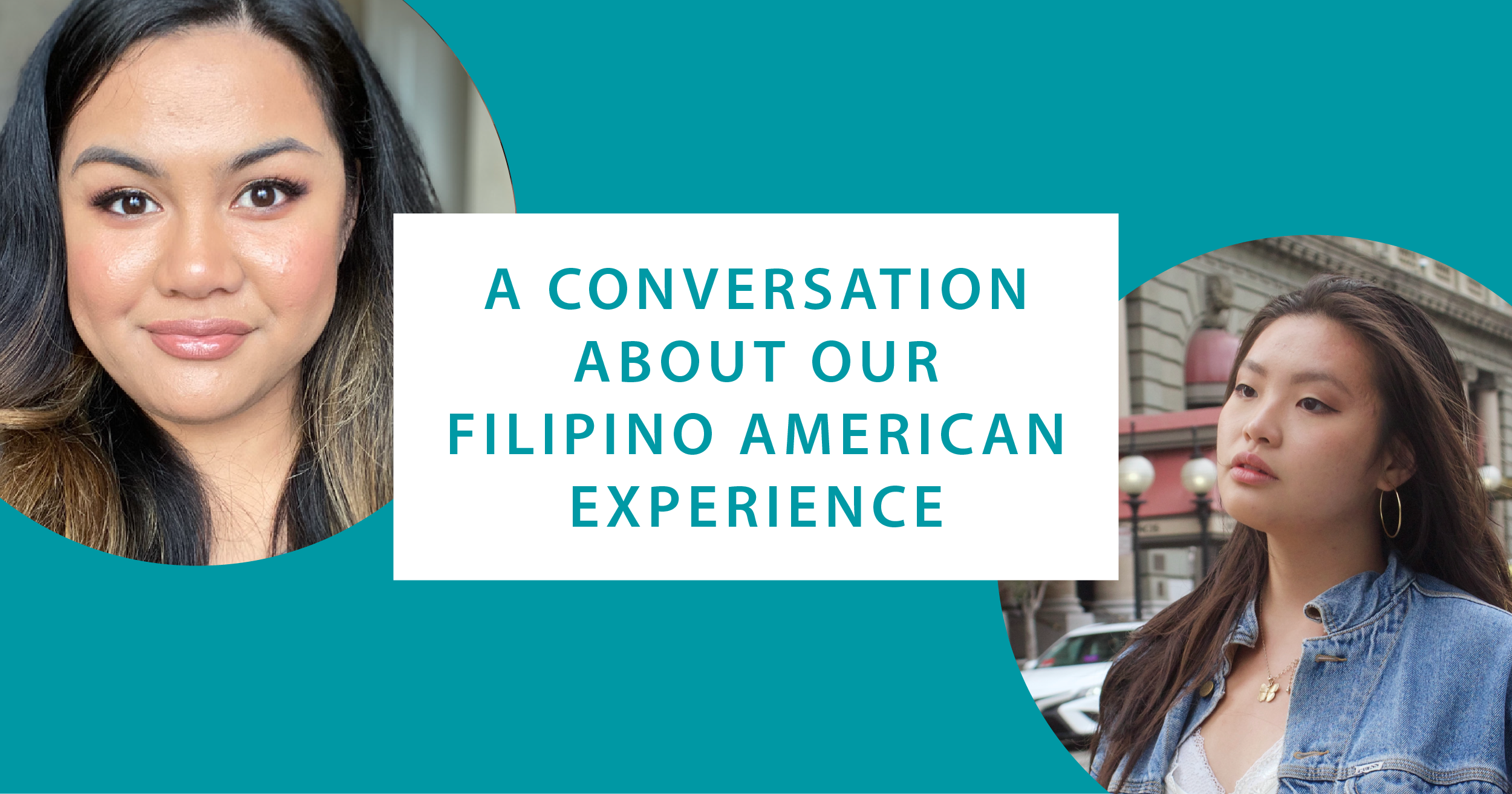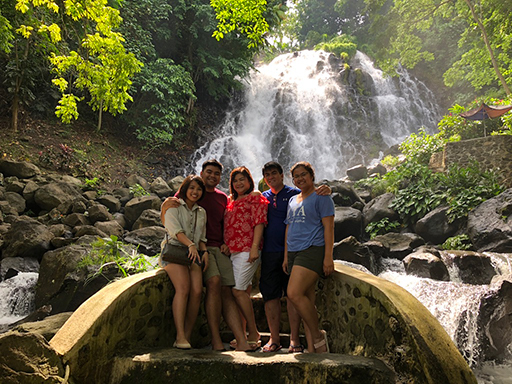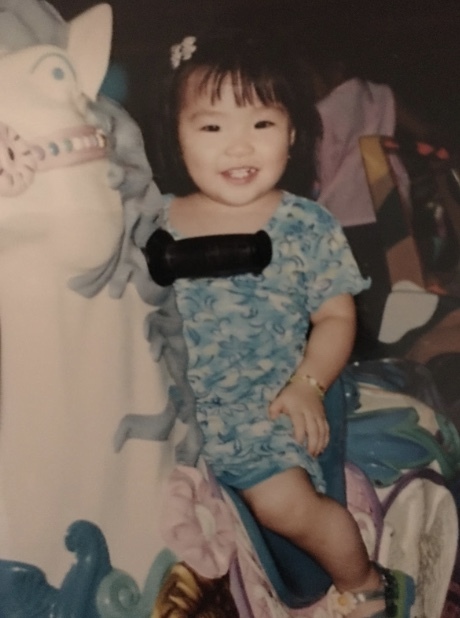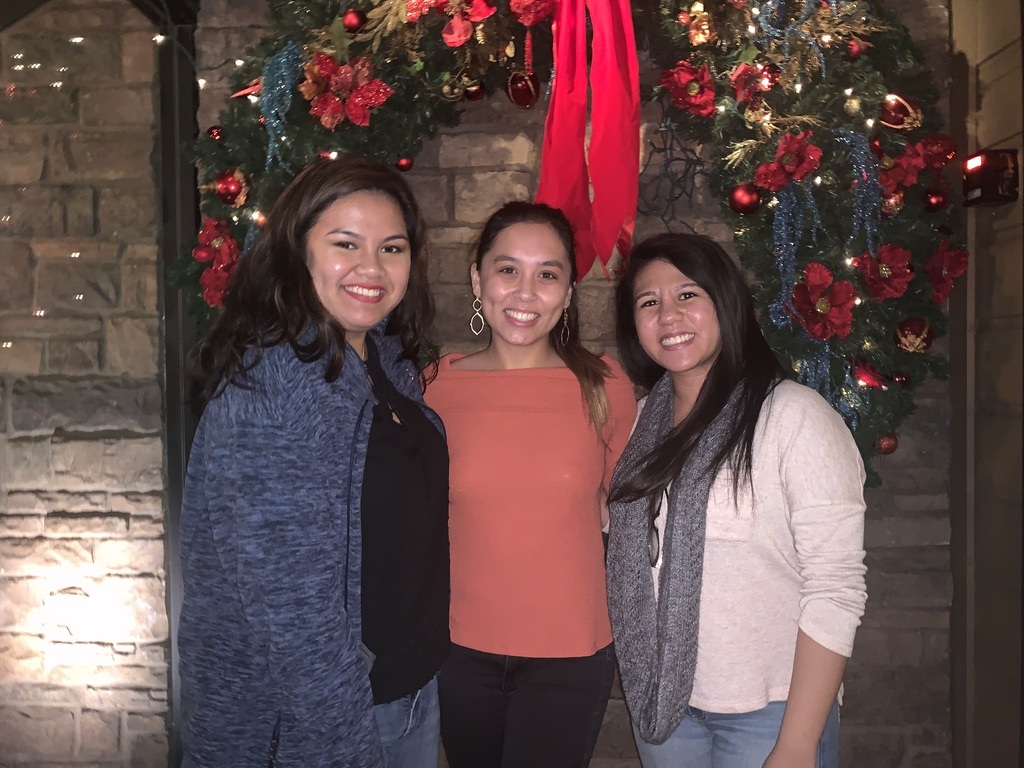News
A conversation about our Filipino American experience
Gracielle Li (Upsilon Chapter, University of California, Berkeley) and I discuss the things that shaped our experience as Filipino American women. While we don’t represent the broad scope of those under the Asian American and Pacific Islander umbrella, we hope our conversation resonates in some way with those who want to learn more about the AAPI experience. It’s important to note the AAPI experience is unique for everyone who identifies with this culture.

Pictured: Kristel (left) and Gracielle (right)
Kristel: Tell me, what was it like coming to the U.S. for the first time? For me, I came here from Iligan (Ee-lee-gahn) City with my mom and Kuya * (Koo-ya) in 1999 to follow my dad to Southern California. I don’t remember too much, being 3 years old. What I do remember of that time was seeing the rest of my family cry as we left; it was the 90s, so there wasn’t much we could do to stay in touch. Phone calls were very expensive back then.
Gracielle: I came here in 2014 to be with my mother, who I hadn’t lived with since I was 3. I had moved from Davao (Dah-vow), a major city, all the way to Paso Robles, a rural area near San Luis Obispo. She had moved there after she met my stepfather; when I came, there was a huge adjustment period of getting to know each other after a decade of being apart.
It was also a culture shock coming from a place I knew my whole life to something so different demographically. Most of the school I went to was white.

Pictured: Kristel and her family pose in front of one of Iligan’s 23 waterfalls in 2018.
Kristel: I can relate a bit; I moved from an industrial area to the suburbs of Orange County. They’re very different worlds. What kinds of things did you deal with when you first came here?
Gracielle: I dealt with bullying; I got made fun of for my accent, the food I ate, etc. I was one of a few people of color in my area; those of us that were there banded together and became friends with each other to deal with it.
Kristel: Right?! I dealt with the food thing as well; I remember eating calamansi ** for a snack and someone telling me it smelled weird. I got a lot of stares for bringing rice and spam for lunch too.
Gracielle: Yes! It’s just food; but it’s also a huge part of our culture.

Pictured: Gracielle smiling as a toddler.
Kristel: Exactly. Personally, I know I struggled a lot with trying to fit in somewhere. My parents decided not to teach me Tagalog (Tah-ga-lowg) or Bisaya (Bee-sai-ya) as they thought it would hinder me in America. I don’t blame them for thinking that, but others made me feel like I wasn’t Filipino enough because of it. As a result, I spent a lot of time as a teenager trying to conform to what I thought “American girls” did only for others to deem I wasn’t American enough either. The term “banana” ^ comes to mind.
Gracielle: That’s something I’ve noticed too; the feeling of not being enough. When I spoke to my friends after having moved to the U.S., they told me I was different. It’s a common feeling among Fil-Ams, even though I identify with our cultural values. I work two jobs despite it being looked down upon to put myself through school and help support my dad back home.
Pictured: Gracielle smiles along with some of her family.
Kristel: You’re a good daughter to help your family. For my parents, I know they saw me taking a job as a personal failing that they “couldn’t provide for me.” For me, I knew not having work experience would reflect poorly on me when I graduated.
Overall, things got better in college; I think going to a school way more diverse than my high school really helped me get out of my head about my identity. Was it like that for you?
Gracielle: Yes! I chose Berkeley to be in a city again. When I came here, I joined the Filipino Association and there, I met my Ate ^^ (Ah-tay) Rachel, who was one of the women that introduced me to sorority life. I’ve been in my chapter for less than a year, and I’ve already brought over my Ading ^^^ (Ah-ding) Sam to ZTA as well.

Pictured: Kristel poses with Bridget Floyd and Nichole Aranda, some of the Filipino women who were on EC when Delta Alpha Chapter was installed. Bridget was President and Nichole was Treasurer.
Kristel: When my chapter was reestablished, three of our founding EC members were Filipino Americans. Up until that point, I rarely saw anyone like us in those positions. Especially considering how underrepresented we are in the U.S. despite being the second largest Asian group here, it made me realize how much I needed representation like that. It’s amazing how much your identity can mean to you.
Gracielle: Definitely. My identity means a lot to me; it defines a lot of my experiences and how people and systems in this country treat me. For instance, I think it’s also important to note that even though we’re technically not first-generation college students, we deal with a lot of similar issues; I had to teach myself how to get to college here. Even though my family had degrees, none of them knew how college in the U.S. worked. No one really talks about how that affects people like us, but it does.
It means a lot to me too that ZTA recognizes this; it really shows that people that I participate with in these activities also understand that my identity is a factor in my life. The way I look, the way I talk, the culture that I grew up with—these are things that impact how others treat me. Having our cultures be honored during Asian/Pacific American Heritage Month is like being told “You’re not weird; you have an identity that’s different from mine and that’s okay.”
_____________
* Filipino word for elder brother
** A citrus fruit akin to a lemon or lime.
^ Derogatory term for westernized Asian person
^^ Big sister in Filipino
^^^ Little sibling in Filipino